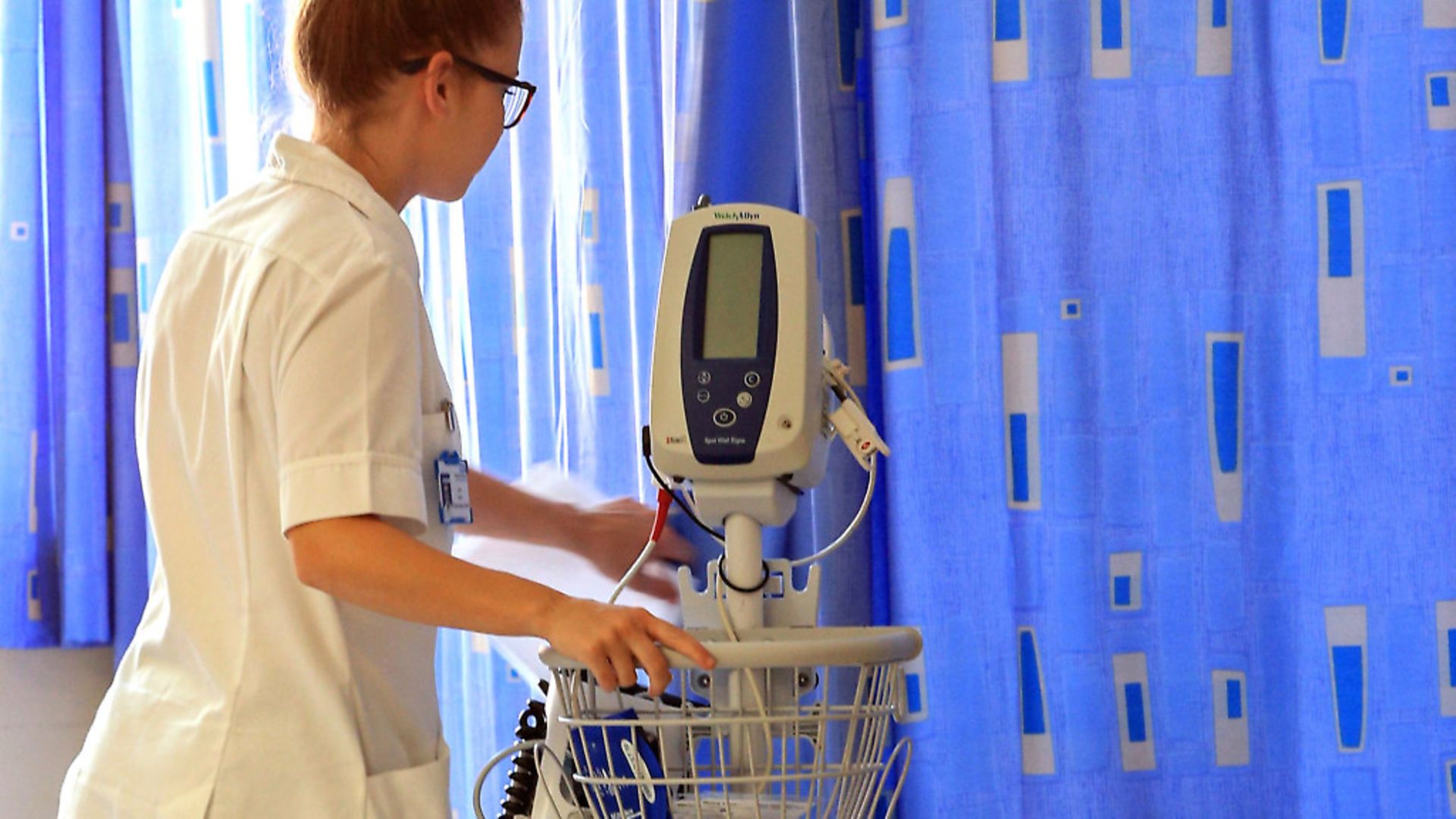
Internal NHS documents, that the government wants kept under wraps, reveal hospitals’ warnings of a possible inability to deliver services adequately in the event of a no-deal Brexit.
The Brexit contingency planning documents of 35 NHS trusts, revealed by Freedom of Information (FoI) requests, show that hospitals are worried about possible staffing shortages, damage to medicine supply, increased costs, and uncertainty around medical research.
– Some patients may have to go without medicines if supply chain is disrupted
– Staffing difficulties could lead hospitals to suspend noncritical activities
– No-deal Brexit given a “catastrophic” risk rating by one trust
– Spanish nurses planning to leave after UK training no longer recognised in Spain
The FoI requests were made by campaign group Best for Britain after the government issued guidance to NHS trusts not to reveal their Brexit planning.
Interim CEO of Best for Britain Naomi Smith said: “It’s no wonder the government didn’t want hospitals releasing these Brexit planning documents.
“They’re terrifying and highlight the scale of damage to our local communities that would be caused by a no-deal Brexit.
“We cannot allow our local hospitals to collapse under the strain of this ideological project.”
There were several key findings from the hospitals that responded.
Medicine and equipment supplies
Despite government assurances that stockpiling will be done centrally, some trusts are writing to the government for extra reassurance.
Much reporting has covered concern over radiology supplies, which are difficult to stockpile, a point that more than one trust made.
But it’s not just radioactive supplies that hospitals are concerned about.
“A large proportion of the drugs and other medical devices on which the trust depends are imported from or through the EU,” said the Christie trust, adding that a no-deal scenario could put this supply at risk.
“When I was a tadpole pharmacist, every hospital carried a civil contingencies medicines stockpile, which was kept in a strong-room,” said the managing director of Shropshire Care Group. “Let’s hope we’re not going back to that!!!!”
In Northamptonshire, the trust warned that “if the supply chain via the EU is disrupted then patients may go without medication or we will have to change to alternatives”, adding that they have no way to mitigate that risk as they don’t know which medicines will be affected.
Tees, Esk and Wear Valleys trust said that in this instance, they would have to manage people without, or with limited, drug regimes.
“This would potentially result in in-patient units being under extreme pressure,” they reported.
At the Dudley Group, around 100 drugs are “at risk”, and said that a no-deal Brexit presented a “catastrophic” risk rating, while the Royal Orthopaedic Hospital’s trust identified 10% of its suppliers as being high or medium risk after Brexit.
Staffing hospitals
Nearly all the trusts that responded said that, with a considerable proportion of staff coming from the EU, attracting and retaining them was a worry.
At Moorfields Eye Hospital, for example, non-UK EU nationals make up 20% of their staff, and a Midlands trust has already committed to covering EU workers’ settled status applications, at a cost of around £65 a head.
Spanish nursing regulators have already withdrawn their recognition of UK nursing experience, as of April 1, reported Bolton NHS trust, which has already caused some of their Spanish nurses to consider leaving.
While the Christie trust said that there has not been a noticeable drop in EU staff leaving, they are concerned about the longer-term risk “because of the perception that the UK is less welcoming to European nationals”, a sentiment echoed by several trusts.
A Derbyshire trust is prepared to suspend “noncritical activities” if there are staff shortages.
Research and funding for clinical trials
The UK has historically done better than the rest of mainland Europe when it comes to getting EU research funding, said Moorfields Eye Hospital’s trust.
Two trusts pointed out that leaving without a deal would exclude the UK from 24 European Reference Networks, which share expertise about rare diseases.
The networks “involve over 900 medical teams in more than 300 hospitals from 25 European countries,” said Northern Lincolnshire and Goole trust.
“This could have damaging impact on nearly one million patients a year – 150,000 of whom are Britons.”
The trust added that across the board, Brexit will create barriers to working collaboratively and sharing expertise, facilities and datasets, ultimately delaying the development of, and access to, new medicines and devices across Europe.
New regulatory barriers could also deter overseas sponsors of studies from getting involved in the UK, said the Christie trust.
Unexpected costs
While much has been written about the savings the UK will make if it decreases immigration, the Midlands trust pointed out that, if we leave without a deal, there could also be an increase in service demand from UK nationals living in Europe who suddenly cannot access healthcare there.
New trade barriers, as well as the extra costs of stopgap suppliers in times of shortage, could also hike up the cost of equipment, consumables and parts, said Great Western Hospitals trust.
Commenting, Best for Britain supporter and Labour MP Dr Paul Williams said: “These documents show that Brexit presents a real threat to patient care across the country.
“We shouldn’t be in a situation where hospitals across the country are scared about staffing levels and potentially having to cut back services in order to stay afloat.”
Forty-three trusts out of the 150 that Best for Britain wrote to refused the FoI request, citing government guidance, while another 70 didn’t reply.
Warning: Illegal string offset 'link_id' in /mnt/storage/stage/www/wp-includes/bookmark.php on line 357
Notice: Trying to get property 'link_id' of non-object in /mnt/storage/stage/www/wp-includes/bookmark.php on line 37






